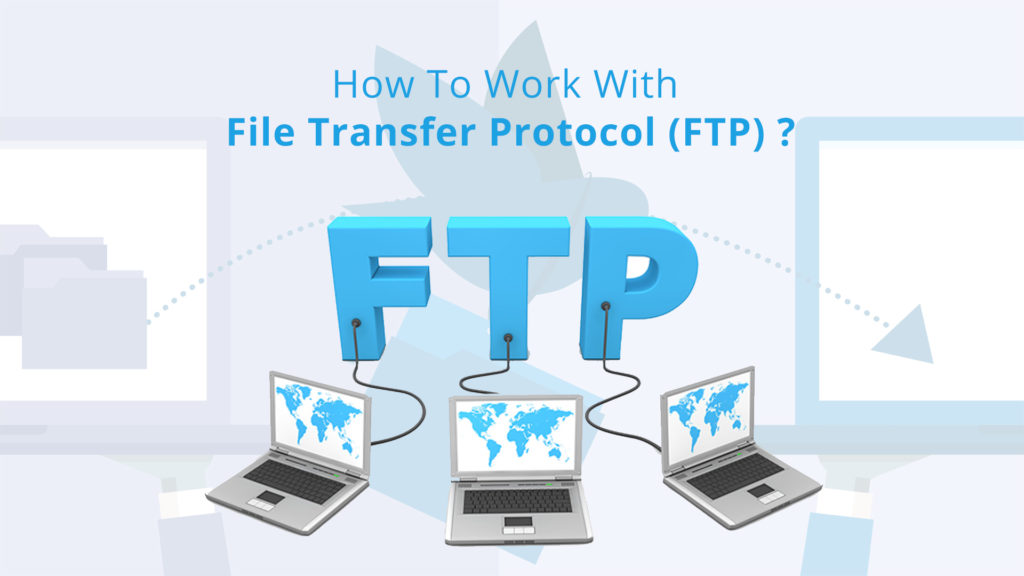A recent study by Forbes Insights and Quantcast provides compelling evidence of how AI marketing enables marketers to achieve remarkable milestones: a 52% increase in sales, 51% enhanced customer satisfaction and retention, and 49% successful new product launches. These statistics underscore AI’s role in amplifying marketing efforts and driving tangible business outcomes.
In this extensive guide, we will explain the concept of AI marketing, how it benefits your business, and how you can implement AI-powered marketing campaigns in your organization to improve your bottom line. Nothing to fear about Siri, Alexa, or Google. Instead, we will become allies.
Table of Contents
What is AI Marketing?
AI Marketing has emerged as a powerful marketing tool for businesses aiming to optimize their campaigns. But what exactly is it? No, it’s not another robot trying to take over your job (as we established), but if you don’t believe me, here’s a quick rundown:
AI Marketing refers to using artificial intelligence and machine learning algorithms to analyze massive datasets and derive actionable insights to enhance marketing strategies. AI Marketing incorporates a variety of methods and technologies, including predictive analytics, natural language processing (NLP), and computer vision.
These advanced capabilities enable marketers to better understand their target audience, predict consumer behavior, and deliver personalized experiences. They are here to help (trust me, fellow human!).
To make sure your AI Marketing campaign is successful, start with a robust data infrastructure. This journey entails collecting and organizing diverse data sets from various sources, such as customer demographics, purchasing history, and social media interactions. The data is then fed into AI algorithms that can process and make sense of it so marketers can use it to their advantage.
Common Applications of AI Marketing
AI-powered marketing tools have the potential to transform traditional marketing campaigns into highly targeted, data-driven, and personalized experiences. By leveraging artificial intelligence, businesses can gain a competitive edge in today’s fast-paced digital landscape. It is important for
Here are some notable use cases of AI marketing applications that marketers can employ to stay relevant and deliver exceptional results:
- Personalized Messaging: Marketers can use AI to segment their audience based on psychographics, identify patterns, and develop customer personas. By understanding their customers on a deeper level, marketers can tailor their messaging and create hyper-personalized content that resonates with each segment.
- Marketing Campaign Optimization: AI can also optimize the delivery of marketing campaigns. Using real-time data analysis, AI algorithms can identify the most effective channels, timing, and content formats for reaching the target audience. This helps maximize campaign performance and improve return on investment (ROI).
- Predictive Modeling: Another powerful application of AI Marketing is predictive modeling. By analyzing historical data and consumer behavior, AI algorithms can forecast future trends and identify potential opportunities or risks. Marketers can leverage these insights to make data-driven decisions and stay ahead of the competition.
- Elevated Customer Experience: AI Marketing tools can revolutionize the customer journey. Through intelligent chatbots, AI-powered virtual assistants, and personalized recommendations, businesses can create seamless and engaging experiences for their customers. AI can also enable marketers to automate repetitive tasks, enabling them to concentrate on more strategic initiatives.
3 Benefits of AI Marketing Campaigns
AI-powered marketing campaigns offer numerous benefits, ranging from improved customer insights to enhanced marketing efficiency. You can gain more than just manually doing it yourself (there’s no shame in the AI game). By maximizing the capabilities of AI, modern businesses can create personalized customer experiences, optimize their marketing strategies, and achieve remarkable results.
Following are 3 key advantages of AI marketing campaigns that digital marketers can achieve today by implementing AI into their digital marketing campaigns and strategies:
Improved Customer Insights
One of the key benefits is the ability to gain improved customer insights, allowing marketers to deeply understand their customer relationships and target market. This innovative approach opens doors to new opportunities and elevates the overall effectiveness of marketing strategies.
Through improved customer insights, businesses can tailor their marketing strategies with precision. AI enables the segmentation of audiences based on various parameters, such as demographics, behavior, and preferences. This level of granularity allows marketers to create highly personalized and targeted campaigns, resulting in better engagement and conversion rates. Adding your personal human touch to it, and you make the best recipe for your customer insight.
Furthermore, AI-powered marketing campaigns can automate time-consuming tasks, freeing valuable resources. From data collection and analysis to content creation and campaign optimization, AI streamlines the process and enhances efficiency. This effectiveness not only saves time but also reduces human errors, leading to more accurate and effective campaigns.
Personalized Customer Experiences
But wait, (of course) there’s more! The ability to deliver personalized customer experiences stands as a key advantage. Through advanced algorithms and machine learning, AI empowers marketers to deliver tailored messages, products, and services to individual customers.
This level of personalization fosters deeper connections, boosts engagement, and enhances brand loyalty. Through sophisticated data analysis, AI algorithms decipher customer preferences, interests, and behaviors, enabling marketers to create hyper-targeted campaigns that resonate with their audience.
Moreover, AI marketing campaigns are adept at using sentiment analysis and sifting through vast amounts of consumer data, enabling businesses to gain invaluable insights into their target market. This data-driven approach ensures informed decision-making, precise audience segmentation, and optimized marketing strategies.
Enhanced Marketing Efficiency
More than just personalized customer experiences and improved customer insights, AI marketing campaigns contribute to enhanced marketing efficiency. AI systems can automate various time-consuming tasks, freeing marketers’ time to focus on strategic activities. And just like what we said in the beginning of this blog, AI is here to help, not to take over.
To illustrate the potential of AI marketing in enhancing efficiency, let’s consider an example: AI interview tools can significantly streamline the candidate screening and selection process. Utilizing natural language processing (NLP) and machine learning, the tool can analyze resumes, conduct preliminary assessments, and identify the most suitable candidates, saving valuable time for HR professionals.
Moreover, businesses can benefit from AI consulting services to optimize their marketing strategies. AI consultants can analyze complex data sets, uncover hidden insights, and recommend data-driven actions. These consultants can provide valuable guidance on optimizing ad spend, identifying target segments, and improving customer engagement, leading to more efficient and effective marketing campaigns.
5 Key Elements of an AI Marketing Campaign
Of course, you can’t rely solely on AI to give you the best marketing campaign (told you you wouldn’t lose your job). You need specific elements to make it happen.
An effective marketing campaign requires a strategic blend of cutting-edge technologies and data-driven insights. Artificial Intelligence has emerged as a game-changer in marketing, enabling businesses to optimize their efforts and achieve remarkable results.
To create a successful AI-powered marketing campaign, the following are the 5 key elements that should be considered:
Data Collection and Analysis
Data collection and analysis is the foundation of an AI marketing campaign. Using advanced data collection techniques, businesses can gather valuable customer information, including preferences, behavior patterns, and demographics. Subsequently, sophisticated AI algorithms can analyze this data to uncover actionable insights. This empowers marketers to make informed decisions and tailor their strategies accordingly.
AI algorithms can process large volumes of data at scale and identify individual customer preferences, allowing marketers to deliver highly personalized content, recommendations, and offers. This level of customization enhances customer engagement and fosters long-term loyalty.
Moreover, AI-driven automation is instrumental in streamlining marketing operations. From lead generation and nurturing to campaign optimization and reporting, AI-powered tools and platforms automate repetitive tasks, freeing up valuable time for marketers to focus on strategic initiatives. Hence, businesses can increase efficiency, reduce human error, and improve campaign performance.
Customer Segmentation and Targeting
AI marketing is crucial in customer segmentation and targeting, revolutionizing traditional marketing strategies. With its advanced algorithms and data analysis capabilities, AI enables businesses to identify distinct customer segments based on their behaviors, preferences, and demographics.
With machine learning techniques (yes, machines can learn), AI can analyze vast amounts of customer data, such as purchase history, browsing patterns, and even social media posts and interactions, to create accurate customer profiles and segments. Consequently, businesses can craft highly effective marketing strategies that resonate with their target audience.
This segmentation allows marketers to understand their target customers better and customize their marketing campaigns to specific groups. AI also helps target customers by predicting their likelihood to engage or convert, enabling personalized and relevant marketing campaigns. Businesses can optimize their marketing strategies, improve customer acquisition and retention, and ultimately enhance their overall marketing ROI.
Use this to your advantage, because AI enables predictive analytics, and will allow marketers to anticipate customer behavior and optimize strategies accordingly. You can essentially predict the future (not totally, but you get it)! Forecast future trends, identify potential churn, and optimize pricing and promotion strategies through this key element.
Content Creation and Optimization
Content creation and optimization have undergone a significant transformation with the advent of AI marketing. Whether it’s through personalized product recommendations, tailored blog articles, or customized email newsletters, AI-driven content creation ensures that customers receive content relevant to their specific interests, increasing engagement and driving conversions.
One of the key advantages of AI in content marketing and creation is its ability to analyze data and identify keywords that are likely to capture the target audience’s attention. AI algorithms can identify trends, patterns, and keywords likely to resonate with the target audience. Moreover, AI-powered tools can provide valuable insights into customers’ specific interests, purchasing habits, and online behaviors. This data enables marketers to create exceptionally tailored content that directly addresses the individual interests of every customer.
AI can also assist in optimizing content by suggesting improvements, such as enhancing SEO strategies, refining headlines, and improving overall readability. By leveraging AI in content creation and optimization, marketers can deliver more effective and relevant content that drives higher engagement and conversions.
Automated Campaign Execution
AI marketing has revolutionized how businesses execute their marketing campaigns by automating the process. This advanced technology enables businesses to achieve greater efficiency and cost-effectiveness. By eliminating the need for manual intervention in various tasks, AI automation frees up valuable time for marketing teams to focus on strategy and creative aspects.
Furthermore, AI automates various marketing tasks, streamlining the campaign execution process. For instance, AI can send automated email marketing campaigns by analyzing customer data, determining the best time to send emails, and personalizing the content for each recipient.
AI can also handle social media scheduling, automatically posting content at optimal times based on user engagement patterns. Additionally, AI algorithms can optimize ad placement across different platforms, identifying the most relevant channels and targeting options to maximize campaign reach and impact.
Performance Tracking and Analytics
AI marketing has transformed performance tracking and analytics, providing businesses with powerful tools to optimize their marketing efforts. With AI-driven solutions, companies can gain deeper insights into their marketing campaigns, customer behavior, and overall performance.
AI algorithms analyze vast amounts of data in real-time, enabling marketers to make data-driven decisions and adjustments on the fly. These tools can track key performance indicators (KPIs) such as website traffic, conversion rates, customer engagement, and campaign ROI, providing comprehensive analytics reports.
AI marketing platforms also offer predictive analytics, allowing businesses to forecast future trends and optimize their strategies accordingly. By leveraging AI marketing for performance tracking and analytics, businesses can enhance their marketing effectiveness, determine opportunities for improvement, and make educated decisions to drive growth and achieve their goals.
Implementing an AI Marketing Campaign
There’s more to just using AI – Implementing an AI-powered marketing strategy or campaign requires strategic thinking, data-driven analysis, and a comprehensive understanding of consumer behavior.
Here are 4 steps businesses need to follow to power their marketing campaigns with artificial intelligence and maximize their efficiency and performance:
Define Campaign Objectives and Goals
Campaign objectives and goals are pivotal elements in implementing an AI marketing campaign. These define the purpose, direction, and desired outcomes of the campaign. The objectives provide a clear understanding of what the campaign aims to achieve, while the goals establish specific targets to measure success.
To begin, campaign objectives outline the overarching intentions of the AI marketing campaign. They can include increasing brand awareness, generating leads, boosting revenue, or enhancing customer engagement. These objectives act as a compass, guiding the campaign strategy and decision-making process.
On the other hand, campaign goals are quantifiable targets that support the objectives. They should be specific, measurable, attainable, relevant, and time-bound (SMART). For instance, a goal could be to increase website traffic by 30% within three months or to achieve a conversion rate of 5% for a specific product.
Through campaign objectives and goals, marketers can align their digital marketing efforts with the desired outcomes and push AI technologies to optimize campaign performance. These defined objectives and goals also facilitate the evaluation of campaign success and enable data-driven decision-making throughout the AI marketing campaign.
Select the Right AI Marketing Tools and Platforms
When implementing an AI marketing campaign, selecting the right AI marketing tool and platform is crucial for success. With a plethora of options available, it’s important to choose tools that align with the business’s campaign objectives and business goals.
Start by clearly defining the marketing goals and the specific tasks businesses want the AI tools to handle, such as customer segmentation, content generation, personalization, or predictive analytics.
Next, research and evaluate different AI marketing tools and platforms in the market. Look for features that meet business requirements and consider factors like ease of use, scalability, integration capabilities, and data security. Read reviews, compare pricing models, and consider seeking recommendations from industry peers or experts.
Moreover, it is important to consider the compatibility of the AI tools and platforms with the existing marketing technology stack. Integration with CRM, email marketing software, or data analytics tools can enhance the effectiveness of a business campaign.
Gather and Prepare Data
A successful AI marketing campaign relies on accurate and comprehensive data. These may include customer databases, website analytics, social media platforms, and third-party data providers.
Once the data sources are determined, the next step is to gather the necessary information to ensure a high-quality data mine. This involves collecting data on customer demographics, behavior patterns, purchase history, and preferences. You can keep data quality by cleansing, organizing, and validating it to create a solid foundation for AI-powered insights.
After gathering the data, it must be processed and organized for effective use in the AI marketing campaign. This includes cleaning the data to remove any errors or inconsistencies and structuring it in a format that is compatible with the AI algorithms being used. Data segmentation and profiling can also help create targeted customer segments for personalized marketing efforts.
Furthermore, data integration may be required to combine data from various sources to gain a comprehensive view of the customer. This can be achieved through data integration tools or platforms.
Execute and Optimize the Campaign
With objectives defined, content marketing tools selected, and data prepared, it’s time to execute and optimize the campaign. Utilize AI algorithms to automate tasks, target specific audience segments, and deliver personalized content at scale. Implementing AI-powered tools like chatbots or recommendation engines can enhance customer engagement and drive conversions.
However, your job is not yet complete. To ensure success in your campaign’s execution, there is another key step you need to take: continuous improvement.
To optimize the campaign, continuously monitor and analyze the performance metrics, such as click-through rates, conversion rates, and customer feedback. Businesses can also A/B test different strategies and leverage AI-driven analytics to optimize and refine their marketing efforts. This data will provide valuable feedback on what strategies are working and what needs improvement.
AI algorithms can help identify patterns and trends to make data-driven decisions for campaign adjustments. Regularly test and iterate different variations of messaging, visuals, and targeting parameters to find the most effective combinations. Additionally, leveraging AI tools to automate and streamline campaign management processes saves time and resources.
Conclusion
You’re now hopefully convinced that AI is here to help you reach new heights instead of taking over. The potential of AI in marketing is limitless.From predictive analytics to chatbots and virtual assistants, AI-powered solutions are reshaping the industry and enabling marketers to reach new heights of success. By leveraging machine learning algorithms, marketers can optimize their strategies, identify patterns, and unlock hidden opportunities, ultimately driving revenue growth.
However, it’s important to remember that AI is not a magic bullet. It needs you. Successful AI marketing campaigns require a deep understanding of the technology, thoughtful planning, and ongoing monitoring (and AI can’t do this themselves!). Moreover, ethical considerations surrounding data privacy and consumer consent must always be at the forefront.
As AI continues to evolve, embracing this technology will empower businesses to maintain a competitive edge, deliver unparalleled customer experiences, and thrive in the digital age. So, let’s leverage the pure power of AI and unlock a world of endless possibilities in the realm of marketing.





